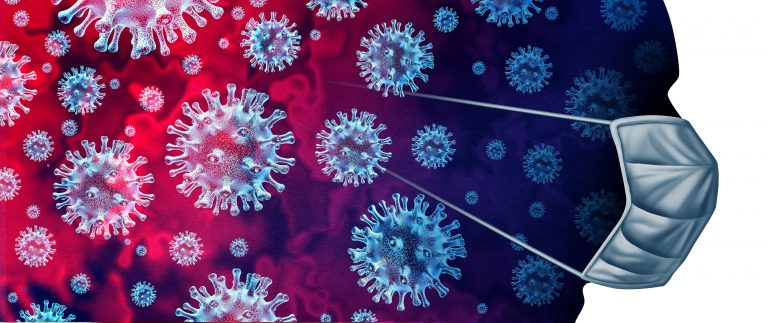Introduction
One of the most common questions that health workers are facing is how to differentiate between a patient suffering from Covid-19 and Flu. After all, both of them have similar and overlapping symptoms of fever, cough and sore throat. However, a deeper look into these diseases can help us understand quite a few significant differences between the two which sets these two diseases apart.
Causative Organism
Both Covid-19 and Influenza are caused due to viruses belonging to different groups. Covid-19 is caused by the virus Sars-nCov2 which belongs to the Coronavirus family. These coronaviruses are also responsible for other viral diseases like SARS and MERS.
Flu typically is caused by virus A and B of the Influenza family.
Transmission
Both Covid-19 and seasonal Flu that transmit through droplet infections. Additional research has shown that Covid-19 may also be airborne and may spread through the air, unlike Flu.
Seasonal flu can spread through asymptomatic patients before symptoms manifest. This is not totally proven in the case of Covid-19 and there are indications that it might spread during its incubation period.
Symptoms
As mentioned earlier, symptoms of Covid-19 and Flu are very similar to each other. But there are some salient features which differentiate these two diseases.
Covid-19 symptoms usually manifest after 3-5 days of getting infected with the virus. Symptoms commonly seen in Covid-19 include mild fever, dry cough, sore throat and difficulty in breathing. Adults suffering from Covid-19 are more likely to develop severe respiratory infection compared to children.
Seasonal flu usually presents with symptoms withing first 3 days of getting infected. Common symptoms usually seen are runny nose, sore throat, fever and body ache. Both adults and children can develop severe flu-related respiratory infections like pneumonia.
Treatment
There are no known treatments yet available for COVID-19. Drugs like Hydroxychloroquine, Azithromycin, Remdesivir have been tried to treat Covid-19 but, as of now, they are still being researched. Symptomatic treatments to manage symptoms is the main line of management for patients suffering from Covid-19.
On the contrary, there are many anti-viral drugs which have already been approved for the treatment of flu. These include Amantadine, Rimantadine, Oseltamivir and Zanamivir amongst many others. These drugs are used in severe cases while mild cases are usually managed by symptomatic treatment.
Please note: Consumption of these medicines should be strictly under the guidance of a licensed medical practitioner.
Vaccines
There are no known Vaccines available yet for Covid-19. Research is currently underway for a vaccine to help deal with the global pandemic of Covid-19.
Influenza vaccines are readily available to deal with different strains of Flu viruses and help prevent severe infections especially in high-risk groups like health care workers and elderly immunocompromised individuals.
Prevention
The best and the most effective way to prevent infection is through vaccination which we now know is possible for Influenza but not for Covid-19. Since both of these diseases are transmitted through droplets, the following precautions are recommended by WHO to prevent their spread:
- Maintaining hand hygiene like following proper handwashing technique using soap and water for 20 seconds or using an alcohol-based sanitiser to clean the hands
- Practising social distancing of at least 6 feet
- Wearing masks to prevent spread as well as a contracting infection
- Covering the mouth while sneezing and coughing
- Avoiding touching the face
- Staying at home if unwell and showing symptoms similar to Flu or Covid-19
Conclusion
We have seen how similar Covid-19 and Influenza can be when presenting with symptoms. But observations till now have indicated that Flu outbreaks are common and usually milder whereas Covid-19 can lead to serious respiratory disease.
Flu usually spreads faster and affects children more easily compared to Covid-19. Diagnosing the diseases and initiating treatment is very critical. Antivirals and vaccines can easily help deal with Flu but there is no definite treatment for Covid-19 yet. The research is currently ongoing to develop drugs or vaccines to manage Covid-19.
The best way to avoid both Flu and Covid-19 is to maintain social distancing, avoiding touching face, handwashing with soap or sanitiser and consulting a doctor or nurse as soon as symptom develops.


